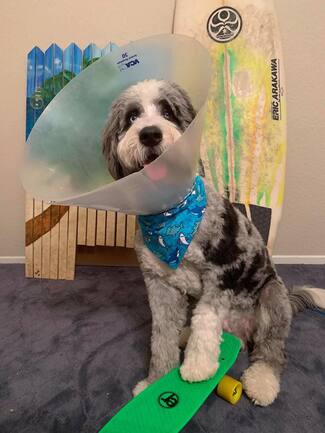Our Guarantee that will be honored to all puppy families - and adjusted to each puppy's individual needs.
#1 guarantee is, we will do everything we can to make your puppy healthy and your family happy! Not all puppies go home perfect. However, we won't accept that, and we will work with you and pay for any imperfections through our vet service. We will not pay vet bills that we are not notified of before any and all procedures.
#1 guarantee is, we will do everything we can to make your puppy healthy and your family happy! Not all puppies go home perfect. However, we won't accept that, and we will work with you and pay for any imperfections through our vet service. We will not pay vet bills that we are not notified of before any and all procedures.
